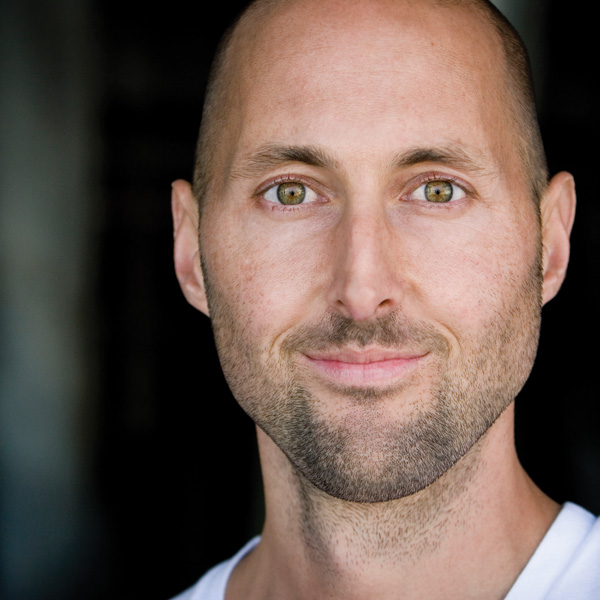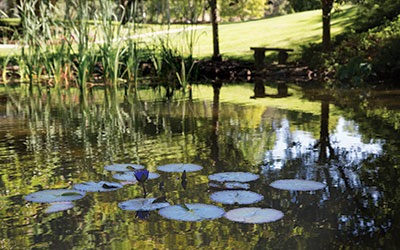One of the world’s great spiritual teachers, Thich Nhat Hanh has spent his life guiding people on the path to mindfulness. In Silence: The Power of Quiet in a World Full of Noise, he shares simple practices for quieting our minds so we can experience more joy and peace.
To cultivate silence, Nhat Hanh explains, we first need to understand that what we consume affects our well-being. He describes the four nutriments, or energy sources, that nourish us, promote growth, and maintain us:
- Edible food: Our daily nutritional intake.
- Sense impressions: Outside stimuli, including magazines, TV shows, movies, websites, and conversations.
- Volition: Our primary motivation.
- Consciousness: Our own thoughts and the collective consciousness of our friends, community, and the world.
When we’re unhappy, he argues, we can consciously examine and adjust our consumption of these nutriments to return to a healthier state of mind and body.
Let’s take a look at how what we consume influences our well-being and learn how to get back on track.
Sensory Clutter
We know that eating nutritious foods benefits our minds and bodies, but Nhat Hanh explains that nourishing our senses can have the same effect. “Perhaps even more than edible food, the sensory food we consume affects how we feel,” he writes.
And if we’re stuffing ourselves with sensory junk food, we’re going to have difficulty connecting deeply with ourselves and others. That’s why we want to interact more mindfully with these external forces.
Think for a moment about all the conversations you’ve had, magazines you’ve read, and TV shows you’ve watched during the past 72 hours. Which of these sources depleted you? Which nourished you? Asking those questions is a good first step toward improving your intake.
Fasting can also make you more aware of your sensory diet. “Many cultures practice fasting for a specific period of time for religious holidays, for initiation rituals, or for other reasons. Other people fast for health reasons. This is worth doing not only for our body but for our consciousness as well,” writes Nhat Hanh.
“Every day, we take in a multitude of words, images, and sounds, and we need some time to stop ingesting all those things and let our mind rest. A day without the sensory food of email, videos, books, and conversations is a chance to clear our mind and release the fear, anxiety, and suffering that can enter our consciousness and accumulate there,” Nhat Hanh writes.
If you’re feeling stressed, unplug from the Internet for a day. Then try spending a day without reading or even conversing. Notice whether your consciousness feels less cluttered with fewer sensory inputs.
Non-Stop Thinking
While plenty of noise comes from outside sources, a great deal also comes from within. “Even when we’re sitting still, with no external stimuli, an endless internal dialogue may be going on in our head,” Nhat Hanh explains. “We’re constantly consuming our thoughts.”
Such rumination is a sure way to create stress in our lives. One way to switch off what Nhat Hanh calls “Radio NST” (Non-Stop Thinking) is meditation. At Plum Village, his Buddhist monastic community in France, they call this process “selective watering.” Meditation helps us bring awareness to the thoughts we nurture.
These thoughts are present in our “store consciousness,” Nhat Hanh says. Think of them as hanging out in our basements. When we allow them to linger in our minds, they essentially move upstairs into our living rooms, or our “mind consciousness.”
Unconsciously “watering” negative thoughts and feelings — inviting them into the living room — is like asking an unwanted guest to take over the house. So, the next time you’re obsessing about something, ask yourself if it’s a guest you’d welcome again, or if it’s someone you can’t wait to see leave.
What’s Your Desire?
Meditation offers us an opportunity to experience stillness, which can help us tune in to our volition.
“We rarely offer ourselves the time and space to consider: Am I doing what I most want to be doing with my life? Do I even know what that is?” Nhat Hanh writes. “The noise in our heads and all around us drowns out the ‘still, small voice’ inside. We are so busy doing ‘something’ that we rarely take a moment to look deeply and check in with our deepest desires.”
What’s your desire? The best way to answer that question is to seek the silence through which that still, small voice can whisper into your soul’s ear.
Watch a Summary of Silence by Thich Nhat Hanh
Optimal Living 101
Explore more profound insights and practical wisdom from leading thinkers by diving into our Optimal Living 101 series.
Thich Nhat Hanh was a Vietnamese Zen Buddhist master, poet, scholar, and peace activist. He is the author of several best-selling books, including Peace Is Every Step: The Path of Mindfulness in Everyday Life, The Art of Power, and Fear: Essential Wisdom for Getting Through the Storm.
This article originally appeared as “Silence Is Golden”.





This Post Has 0 Comments